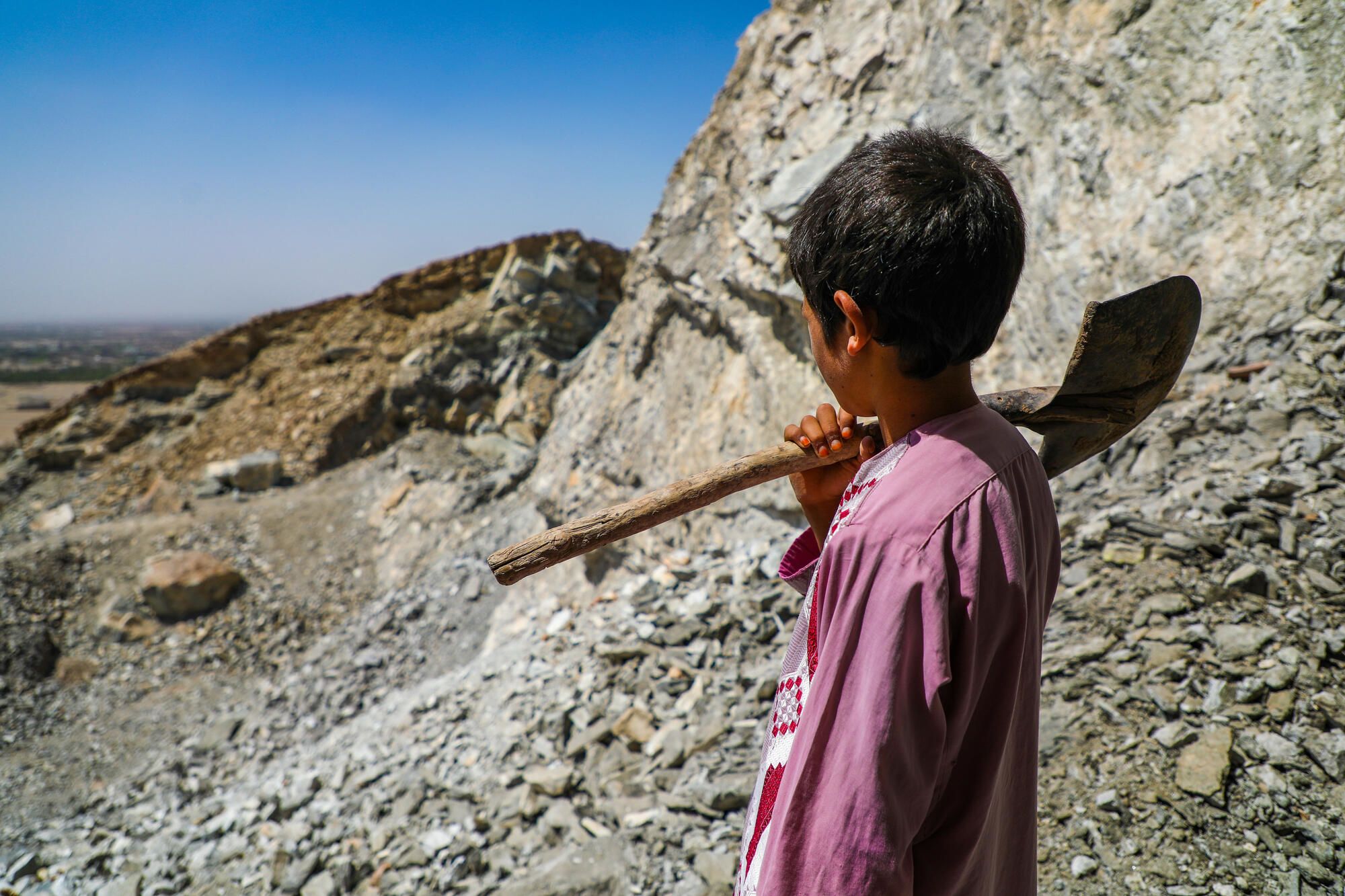Mujeb's Story
How hunger forces him to work instead of go to school


“My father is sick, if I don’t work, we will stay hungry.”
— Mujeb, 12
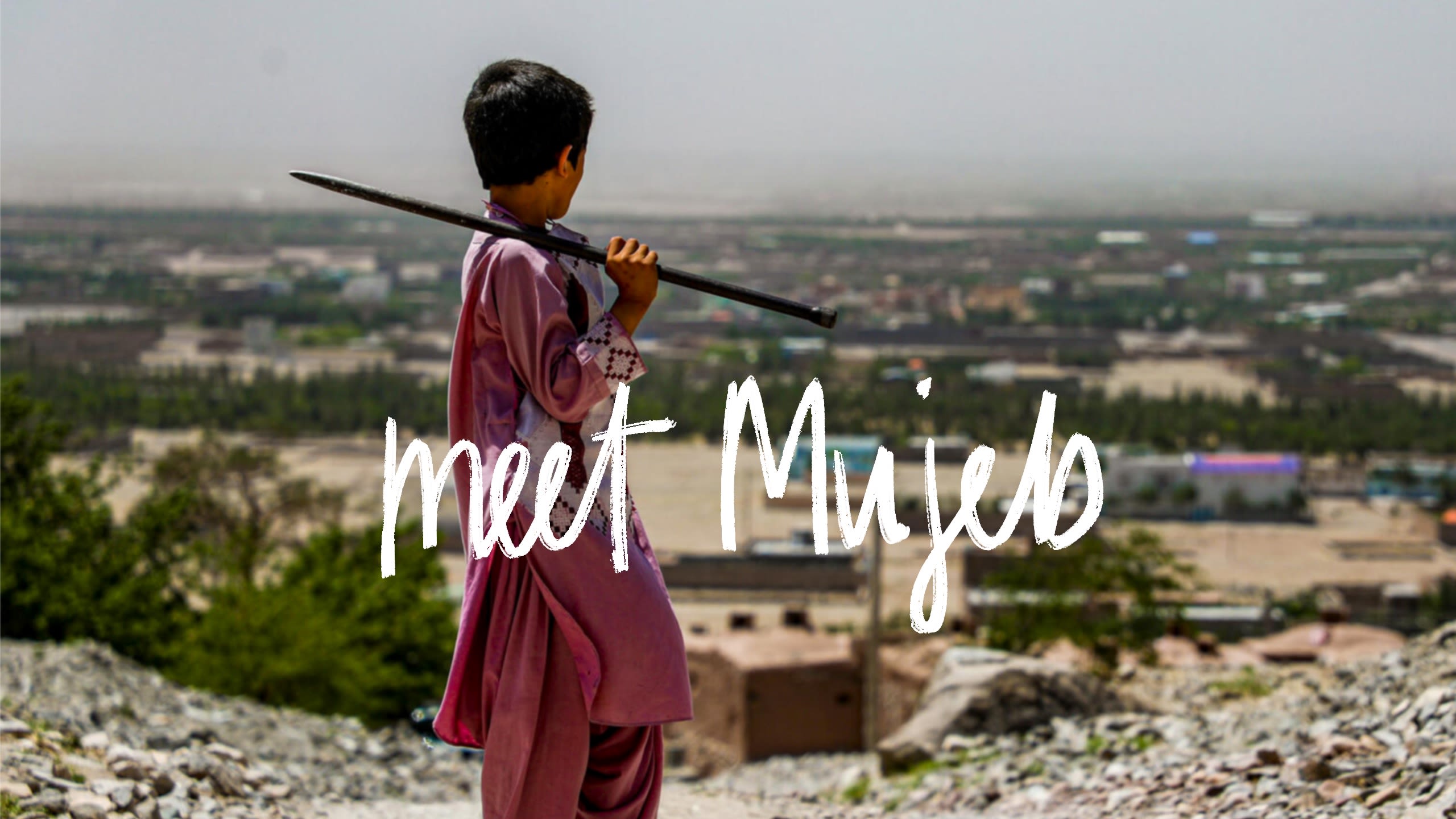
At 12-years-old, he is the sole breadwinner for his family.
Tragically, this is not an isolated story. Children in Afghanistan continue to face crisis after crisis. Drought, climate change, as well as economic and social crises, have left millions of Afghan families without access to food supplies, regular income or social protection.
So, every morning, instead of going to school, Mujeb heads to the mountain with his friend to dig and break stones.
“I work from 6 in the morning until 6 in the evening.”
— Mujeb, 12

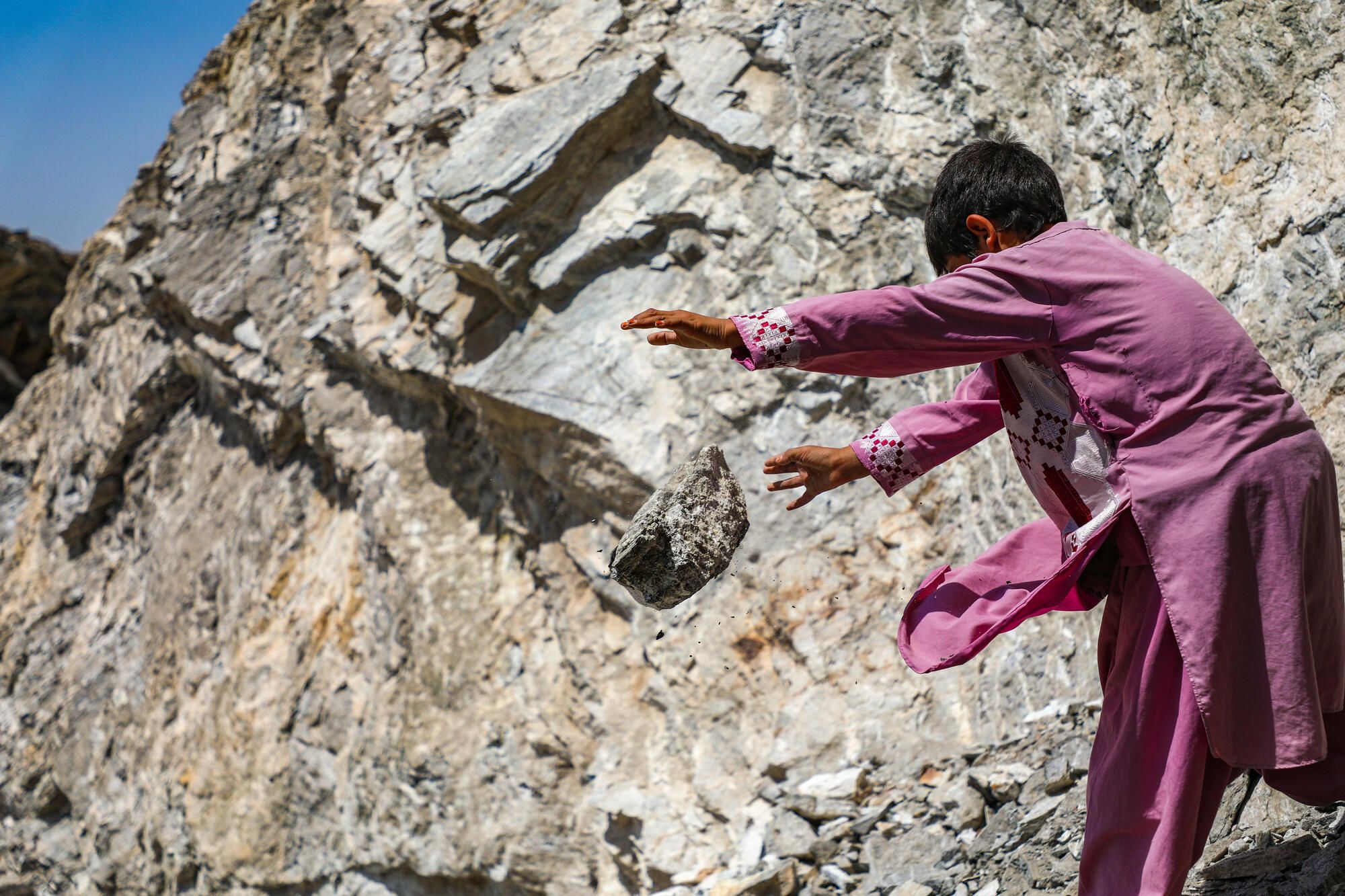
At a very young age, Mujeb had his childhood stolen away from him. Instead of waking up to play and learn with his peers, he bears the heavy emotional and physical burden no child should ever have to carry: Providing the next meal for his family.
Hidden away on the mountain, tired, working in the scorching sun, Mujeb breathes in the dust from the broken stones. He says that his job makes him fear for his life:
“The weather is so hot that my head gets hot, and sometimes when I break rocks, my nose bleeds, and it becomes very difficult for me to break the stone."
— Mujeb, 12

"I have been working together with my friend for about three or four years. There are many dangers and difficulties. For example, if a stone falls on your head, you will die.”
— Mujeb, 12

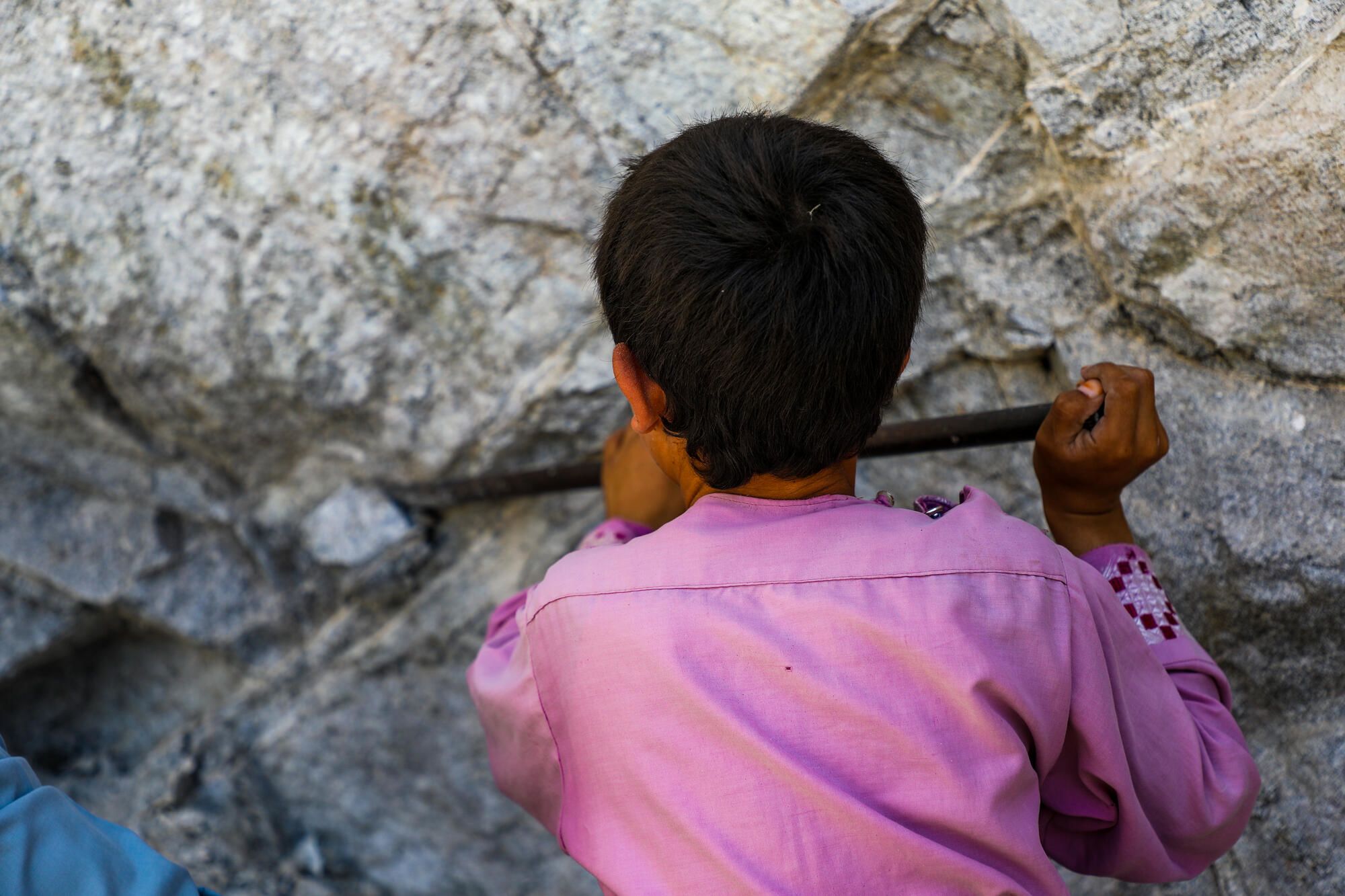
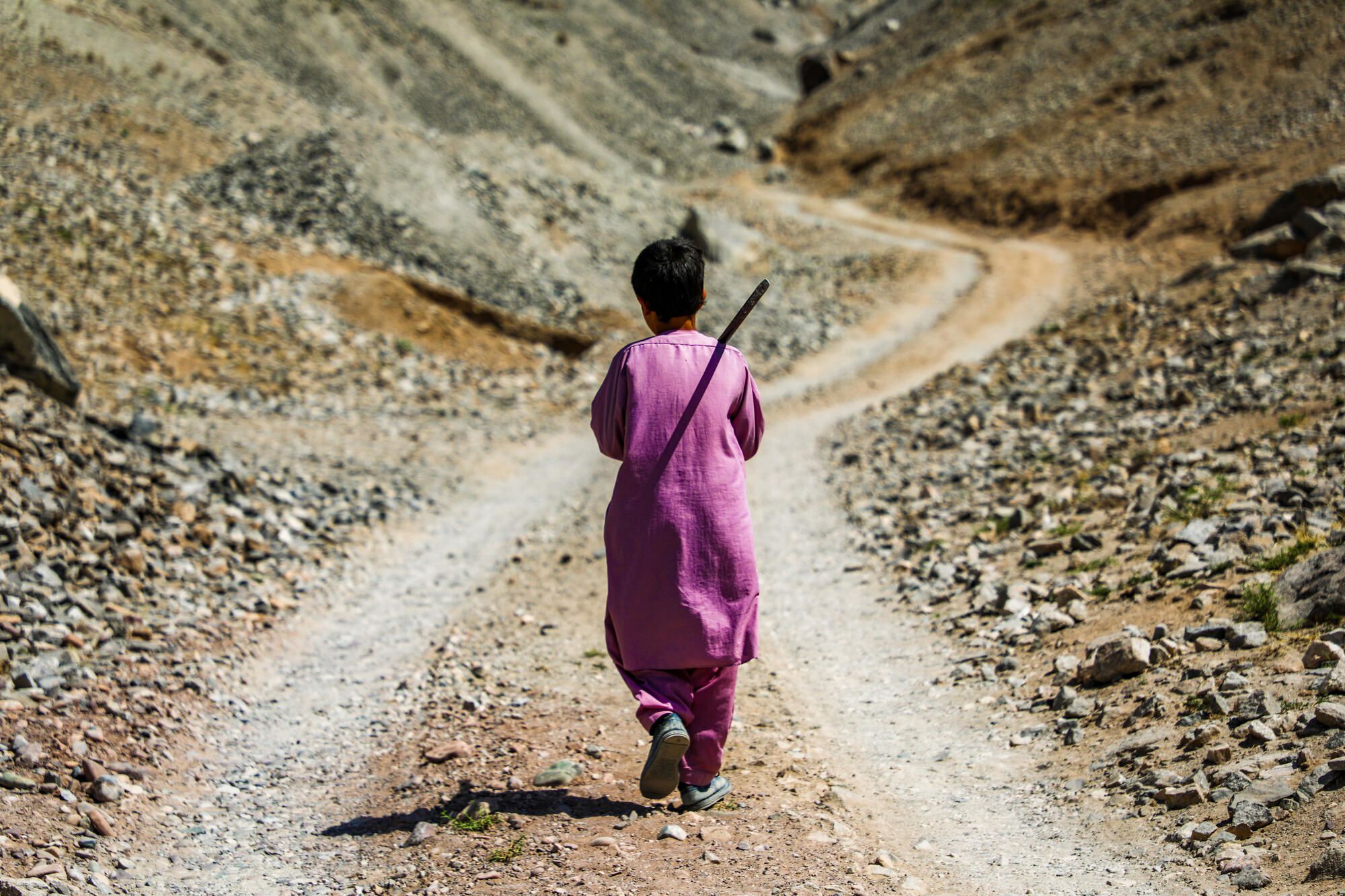
In many contexts, long hours and high-risk working environments guarantee higher pay and protective gear. This is not the case for Mujeb, who puts his life on the line and splits his daily wages with another boy working alongside him — leaving him with barely enough for the essentials.
“If the car comes and we load it, he will give us 700 Afghanis [US$8], which we divide between myself and my friend and use that money to buy flour and rice for our families.”
— Mujeb, 12
This is how the vicious cycle of poverty continues.


“I don’t go to school or the mosque to study. I don’t do anything anymore; I just break stones.”
— Mujeb, 12
The International Labour Organisation defines child labour as work that “deprives children of their childhood, their potential and their dignity, and that is harmful to physical and mental development.”
We know that when parents struggle to provide enough food for their families, children often have no choice but to give up their education to work.


While the contribution of working children is often critical to their families’ survival, child labour has devastating consequences.
It severely impacts their mental and physical health, as well as their dignity and self-confidence. It robs them of their chance to get an education, which only makes it more difficult to break out of poverty with a well-paying job in the future.
“I wish I was at school at this moment. And my dream is to become a teacher in the future, but if I work here, how can I achieve my dream?”
— Mujeb, 12


Mujeb is a caring and dedicated young boy, soon to be a teenager. He’s also a good friend. Despite his daily struggles, Mujeb still has big dreams for the future.
Imagine, what his life would look like if hunger didn’t dictate his every decision and he had enough to safely enjoy his childhood?
There are many children, like Mujeb, who have sacrificed childhood for work. Our programming helps us ensure these children have access to their basic rights.
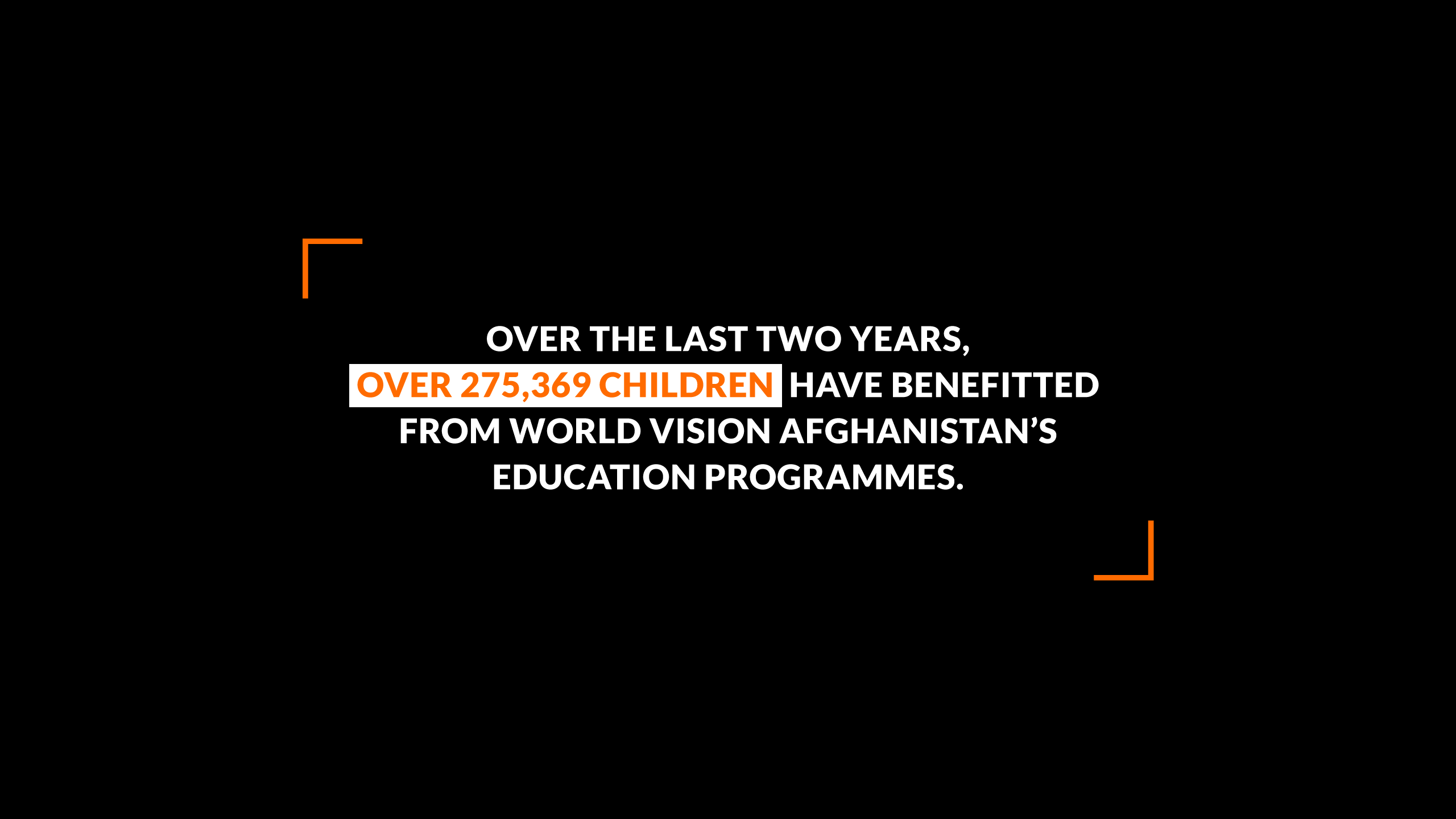
The goal is to reach 2.1 million children by 2025.
Learn more about our Childhood Rescue programme to support children and families living in Afghanistan and other complex and dangerous places.
